Did you know that New Caledonia uses a unique currency, the CFP franc, which has been in circulation since 1945? This South Pacific gem blends modern payment methods with traditional cash usage, making it essential to understand how to manage your money while exploring its stunning landscapes.
Whether you’re strolling through Nouméa or venturing into remote areas, knowing the local currency system ensures a smooth travel experience. While cards are widely accepted in cities, cash remains king in rural spots. This guide will walk you through everything from ATM usage to smart exchange strategies.
Get ready to dive into the details of the CFP franc, its history, and practical tips for handling your money efficiently. Let’s make your trip to this tropical paradise as seamless as possible!
Introduction to New Caledonia: Your Gateway to Currency and Travel Tips
Before you pack your bags, understanding the local currency system is key to a stress-free trip. This South Pacific destination offers a unique blend of modern amenities and traditional charm, making it a must-visit for any traveler.
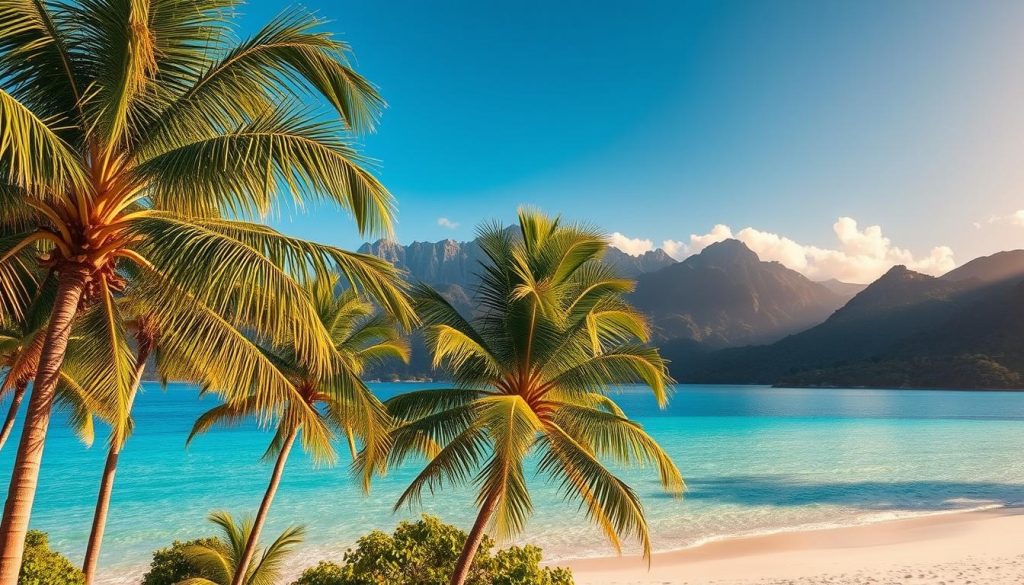
New Caledonia is more than just a tropical paradise. It’s a place where vibrant culture meets stunning natural beauty. From the bustling streets of Nouméa to the serene landscapes of the outer islands, there’s something for everyone.
About New Caledonia as a Destination
This island nation is home to some of the world’s most breathtaking sights. The UNESCO-listed lagoon, with its 400 km barrier reef, is a haven for divers and nature lovers. Meanwhile, the rich Kanak culture adds a unique flavor to your travel experience.
Why Currency Knowledge Matters for Your Trip
Knowing how to handle your money in New Caledonia can save you time and avoid unnecessary fees. While cards are widely accepted in cities, cash is still essential in rural areas. Planning ahead ensures you’re prepared for any situation.
“Understanding the local currency system is the first step to a seamless travel experience.”
Here are a few tips to help you manage your finances:
- Exchange some currency at the airport or local bank before heading to remote areas.
- Carry a mix of cash and cards to cover all your needs.
- Check for foreign transaction fees on your cards to avoid surprises.
With these insights, you’ll be ready to explore this incredible destination with confidence. Whether you’re relaxing on the beach or diving into the local culture, managing your money wisely ensures a memorable trip.
New Caledonia: Ultimate Travelers Guide to Currencies & Payments
The Pacific franc, or CFP, has been a cornerstone of New Caledonia’s economy since 1945. Issued by the Institut d’émission d’Outre-Mer (IEOM), this currency is used not only here but also in other French collectivities. Its stability and unique history make it a fascinating subject for travelers.
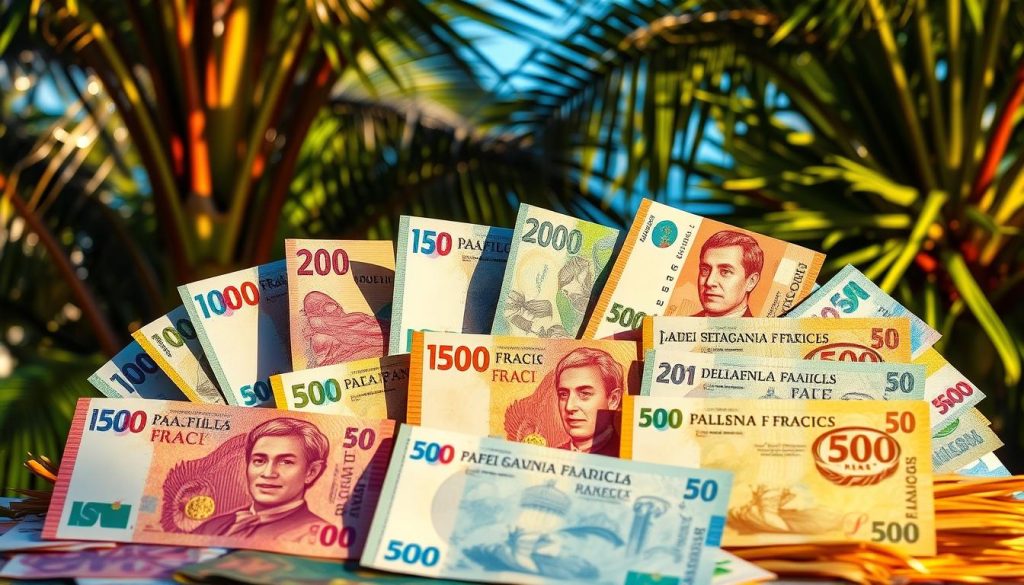
Historical Background of the CFP Franc
Introduced after World War II, the CFP franc was designed to stabilize the economies of French territories in the Pacific. Over the decades, it has become a symbol of regional identity. Today, it’s pegged to the euro, ensuring its value remains consistent.
Why the CFP Franc Matters
In New Caledonia, the CFP franc is central to all financial transactions. Whether you’re buying a cup of coffee or booking a hotel, you’ll use this local currency. While cards are widely accepted in cities, cash is essential in rural areas.
“The CFP franc is more than just money—it’s a bridge between tradition and modernity.”
Practical Tips for Using the CFP Franc
Here’s how you can make the most of your money while traveling:
- Exchange some currency before heading to remote areas.
- Carry a mix of cash and cards for flexibility.
- Check for foreign transaction fees on your cards to avoid surprises.
| Item | Cost in CFP Franc (XPF) |
|---|---|
| Standard Hotel Room | 14,000 |
| Meal at a Restaurant | 1,000–3,500 |
| Bottle of Beer | 700 |
| 2km Taxi Ride | 550 |
Understanding the CFP franc ensures a smooth and enjoyable trip. From bustling markets to serene beaches, this currency will be your key to unlocking the best of New Caledonia.
Discovering the Local Currency and Payment Methods
Navigating the local currency system is essential for a hassle-free experience. Whether you’re exploring bustling cities or remote villages, knowing how to handle your money ensures you’re prepared for any situation.
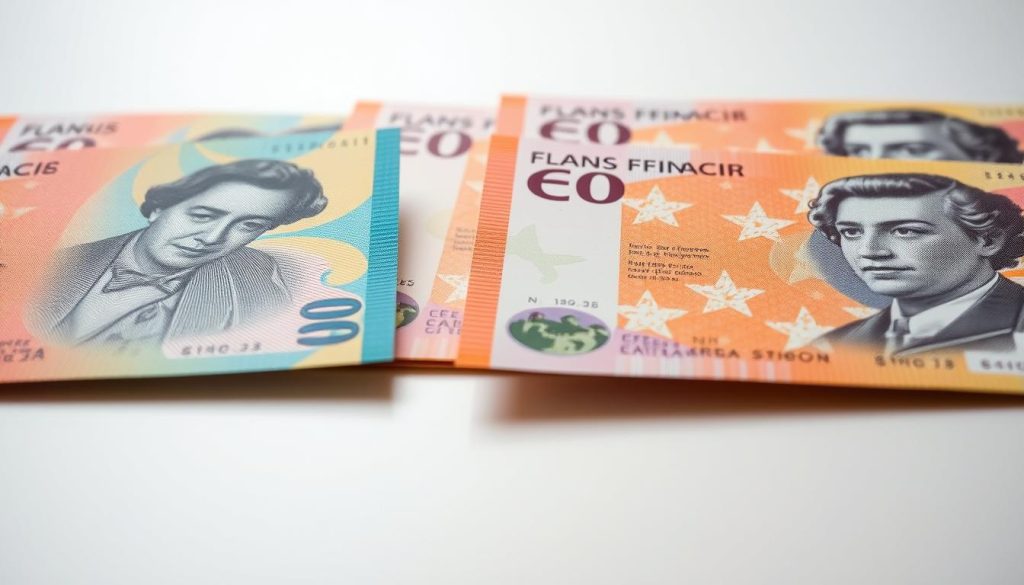
CFP Franc Details & Denominations
The CFP franc is available in both coins and banknotes. Coins come in denominations of 1, 2, 5, 10, 20, 50, and 100 francs. Banknotes are issued in 500, 1,000, 5,000, and 10,000 francs. These denominations make it easy to handle everyday transactions, from small purchases to larger expenses.
Where and How to Use Cash and Cards
In cities like Nouméa, cards are widely accepted at hotels, restaurants, and major stores. However, cash is the preferred way to pay in smaller towns and rural areas. Markets, local shops, and transportation services often require physical currency.
Here are some practical tips for managing your money:
- Carry a mix of cash and cards for flexibility.
- Use ATMs in cities to withdraw local currency before heading to remote areas.
- Check with your bank about foreign transaction fees to avoid surprises.
For currency exchange, visit banks or authorized exchange offices. These locations offer competitive rates and ensure you get the best price for your money. Remember to bring proof of identity for these transactions.
By understanding the local currency and payment methods, you can focus on enjoying your trip without financial stress. Whether you’re shopping at a market or dining at a restaurant, these tips will help you navigate your money with ease.
Smart Payment Options for Your New Caledonia Adventure
When planning your trip, knowing the best payment options can make your journey smoother. Whether you’re dining at a restaurant or booking a hotel, choosing the right card ensures you get the best value and avoid unnecessary fees.
Credit Card Considerations on the Islands
Most hotels, restaurants, and major businesses accept credit cards like Visa, Mastercard, and American Express. However, surcharges may apply, especially outside major destinations. American Express is less widely accepted compared to Visa and Mastercard, so it’s wise to carry a backup.
Here are some tips for using credit cards:
- Check for foreign transaction fees, which can range from 1% to 3%.
- Notify your bank about your travel plans to avoid card blocks.
- Use cards with no foreign transaction fees for better savings.
Insights into Using Debit and Prepaid Cards
Debit cards are ideal for ATM withdrawals, offering competitive exchange rates. Prepaid cards, while less supported, can be a good option for budgeting. Brands like Wise, ING, Citibank, and Revolut offer travel-friendly cards with minimal fees.
Here’s a quick comparison of card types:
| Card Type | Best For | Fees |
|---|---|---|
| Credit Card | Hotels, restaurants, major purchases | Foreign transaction fees (1%-3%) |
| Debit Card | ATM withdrawals, cash access | ATM fees, low exchange rates |
| Prepaid Card | Budgeting, controlled spending | Reload fees, limited acceptance |
In remote areas, cash might be necessary, so always carry some local currency. By understanding these payment options, you can enjoy a hassle-free experience while exploring the islands.
Optimizing Currency Exchange: Rates, Fees, and Best Practices
Getting the best value for your money starts with smart currency exchange strategies. Whether you’re planning ahead or handling transactions on the go, understanding rates and fees can make your travel budget go further.

Pre-trip Currency Exchange Tips
Before you leave, exchanging some currency can save you time and avoid high fees at airports. Compare exchange rates at local banks or online platforms to secure the best deal. Notify your bank about your travel plans to prevent card freezes.
Here are a few pre-trip tips:
- Use trusted exchange offices or online services for competitive rates.
- Carry a mix of cash and credit cards for flexibility.
- Check for hidden fees or commissions before finalizing transactions.
On-the-Ground Exchange Strategies
Once you arrive, withdrawing money from ATMs is often the most cost-effective option. Look for ATMs in major cities like Nouméa, where exchange rates are typically better than at airports. Always withdraw the exact amount you need to minimize fees.
Key on-the-ground tips:
- Avoid airport exchange offices, as they often charge higher fees.
- Check the operating hours of local banks (usually 7:30 AM to 3:45 PM, Monday to Friday).
- Compare rates among different banks and exchange providers for the best value.
Understanding ATM Guidelines and Fees
Using ATMs is convenient, but it’s essential to understand the fee structure. Some ATMs charge a flat fee per withdrawal, while others add a percentage of the transaction. Always check with your bank to avoid surprises.
Here’s how to make the most of ATMs:
- Withdraw larger amounts to reduce the number of transactions and fees.
- Use ATMs affiliated with major banks for better security and lower fees.
- Keep track of your withdrawal limits to avoid unnecessary charges.
By following these tips, you can optimize your currency exchange process and ensure you get the best value for your money. Whether you’re planning ahead or handling transactions on the go, these strategies will help you save time and avoid unnecessary fees.
Local Travel Insights Beyond Currency: Customs, Connectivity, and More
Exploring this destination goes beyond just handling money; it’s about immersing yourself in its culture and lifestyle. From understanding local customs to staying connected, these insights will enhance your travel experience.
Cultural Etiquette and Traditional Gestures
When visiting Kanak communities, showing respect for their traditions is essential. A small gift, like fruit or flowers, is a customary gesture when welcomed by tribal hosts. This simple act can go a long way in building rapport.
Understanding cultural etiquette is key. For example, always ask for permission before taking photos of people or sacred sites. These practices show respect and help you connect more deeply with the local way of life.
Navigating Local Infrastructure and Transport
In the city of Nouméa, public transport options include buses and taxis, which are reliable and affordable. For more flexibility, consider renting a car to explore at your own pace.
Roads in major areas are well-maintained, but if you’re heading to remote islands, be prepared for rougher terrain. Always check weather conditions, especially during cyclone season, to ensure safe travel.
Staying Connected: SIM Cards, Wi-Fi, and More
Staying connected is easy in most parts of the destination. SIM cards are widely available at airports and local shops, offering affordable data plans. Pocket Wi-Fi devices are another great option for tourists.
Most hotels and cafes provide free Wi-Fi, but speeds may vary. If you’re venturing into rural areas, it’s wise to download maps and essential information beforehand.
By embracing these local insights, you’ll not only manage your money wisely but also enjoy a richer, more meaningful travel experience.
Conclusion
To make the most of your visit, understanding the local payment methods is essential. Whether you’re using cash, a credit card, or withdrawing from an ATM, preparation ensures a smooth experience. The CFP franc, the local currency, is widely accepted, but having a mix of payment options is key, especially in rural areas.
Plan ahead to secure the best exchange rates by visiting banks or authorized exchange offices. Notify your bank about your travel plans to avoid card issues. In cities, cards are convenient, but cash remains vital for smaller vendors and markets.
By preparing wisely, you can focus on enjoying this stunning destination without financial stress. From bustling hotels to serene beaches, your trip will be seamless with the right payment strategies in place.
The above is subject to change.
Check back often to TRAVEL.COM for the latest travel tips and deals.
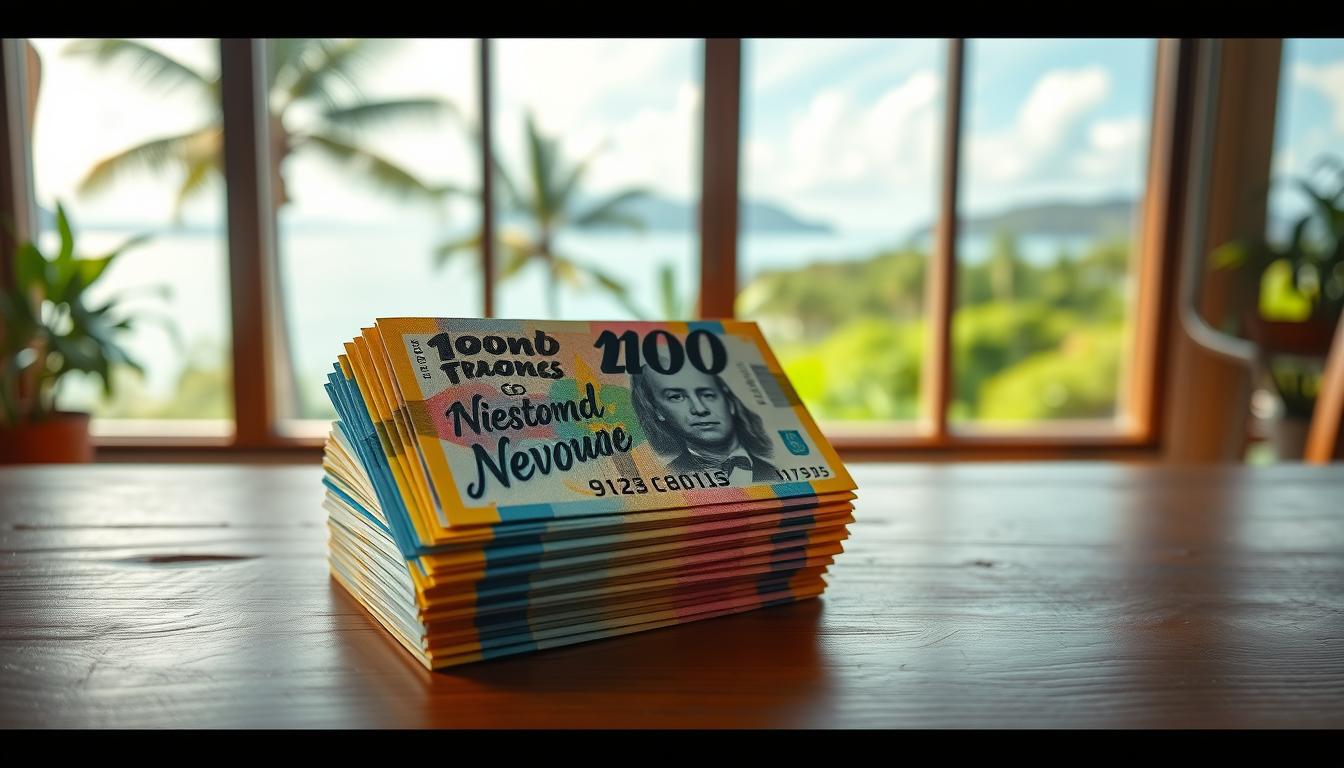
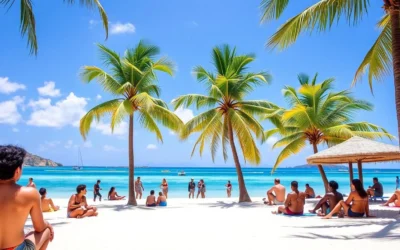


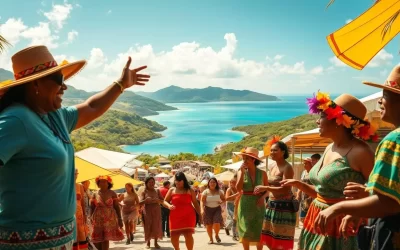
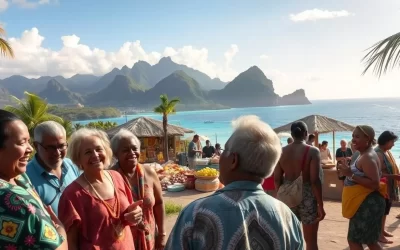
0 Comments